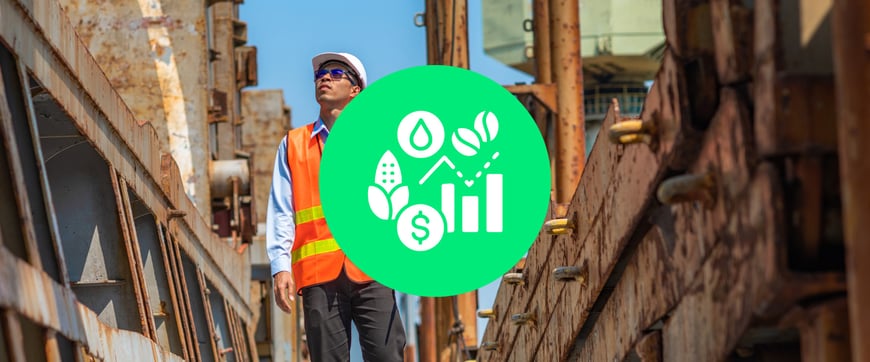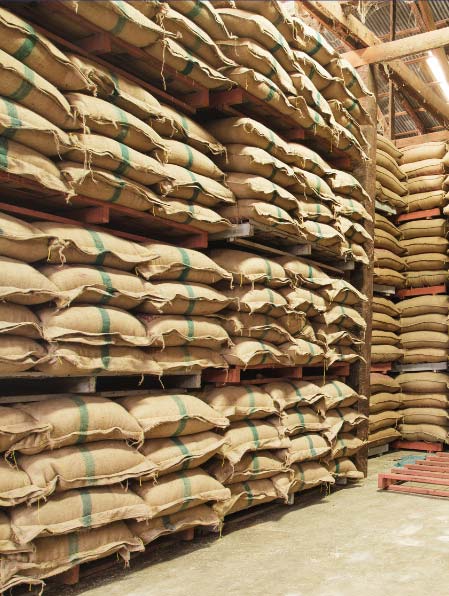Are you a Commodity Inspection Pro?
Are you a commodity inspector looking to expand your client base and grow your business? Look no further than Inspexion.com, the global inspection service marketplace that connects you with clients in need of your expertise.
Are you a professional in the field of commodity inspection, specializing in agriculture, energy, or metals? If so, we have the perfect marketplace for you to showcase your skills and grow your business. Join our network of professional inspectors today!
At Inspexion.com, we have a network of over 165,000 freelance quality control professionals and over 600 inspection companies worldwide. Our platform allows you to bid on inspection jobs and make instant offers to clients in need of your services. As an accredited company or freelance professional registered on our platform, you’ll have the opportunity to produce professional reports benchmarked to international reporting standards and offer cost-effective services to clients closest to your inspection site.
Purpose: The primary purpose of commodity inspections is to verify that products meet the required specifications, standards, and regulations. This includes assessing factors such as product quality, safety, functionality, and conformity to contractual agreements
Types of Inspections:
-
- Pre-Production Inspection: Conducted before manufacturing begins to ensure that raw materials, components, and production processes meet specified requirements.
- During Production Inspection: Occurs at various stages of production to identify and address quality issues as they arise, preventing the production of substandard goods.
- Final Random Inspection (FRI): Performed when production is completed and a random sample of finished goods is inspected to check for compliance with quality standards.
- Loading and Unloading Inspection: Conducted at the point of shipment to confirm that the correct products are being loaded or unloaded, and they are in good condition.
-
Regulatory Compliance: Commodity inspections often involve checking whether products comply with local, national, and international regulations and standards. This can include safety, environmental, and quality standards
-
Third-Party Inspection Services: Many organizations hire third-party inspection agencies to perform these inspections. These agencies are independent and provide an unbiased assessment of the products' quality and compliance
Documentation: Inspections typically generate detailed reports that include information about the inspection process, findings, and recommendations. These reports are important for making informed decisions regarding product acceptance, rejection, or necessary corrective actions.
Sampling: Inspectors often use statistical sampling techniques to select a representative sample of products for evaluation. This sample should accurately reflect the overall quality of the entire batch.
Packaging and Labeling: In addition to the product itself, inspectors may also check packaging and labeling to ensure they meet the required standards and accurately represent the product.
Supply Chain Control: Commodity inspections play a vital role in supply chain management, helping companies maintain control over their supply chains, reduce risks, and improve overall product quality.
Global Trade: For international trade, commodity inspections are essential to ensure that products meet the importing country's standards and regulations. This helps prevent the entry of substandard or unsafe goods into foreign markets.
Cost Considerations: While commodity inspections add a cost to the production process, they are often seen as an essential investment to prevent costly quality issues, product recalls, and damage to a company's reputation.
Commodity inspectors play a vital role in ensuring the quality, safety, and compliance of products. Qualifications for a commodity inspector can vary depending on the specific industry and the nature of the products being inspected. However, there are some common qualifications and skills that are generally expected of commodity inspectors, such as education, industry-specific knowledge, training and certification, technical skills, attention to detail, communication skills, problem-solving skills, ethical conduct, physical fitness, computer skills, regulatory knowledge, and experience.
Many industries offer specialized training programs and certifications for commodity inspectors. For example, in the food industry, certifications like HACCP (Hazard Analysis and Critical Control Points) are often required. In the manufacturing sector, certifications in quality control and Six Sigma may be valuable. In the agricultural sector, inspectors may need certifications related to pesticide application or organic farming practices. Inspectors should also possess technical skills related to the equipment and tools used in inspections and have a keen eye for detail to spot defects or non-compliance issues in products. Effective communication is crucial for conveying inspection findings to relevant parties and inspectors must conduct their work with integrity and impartiality.







